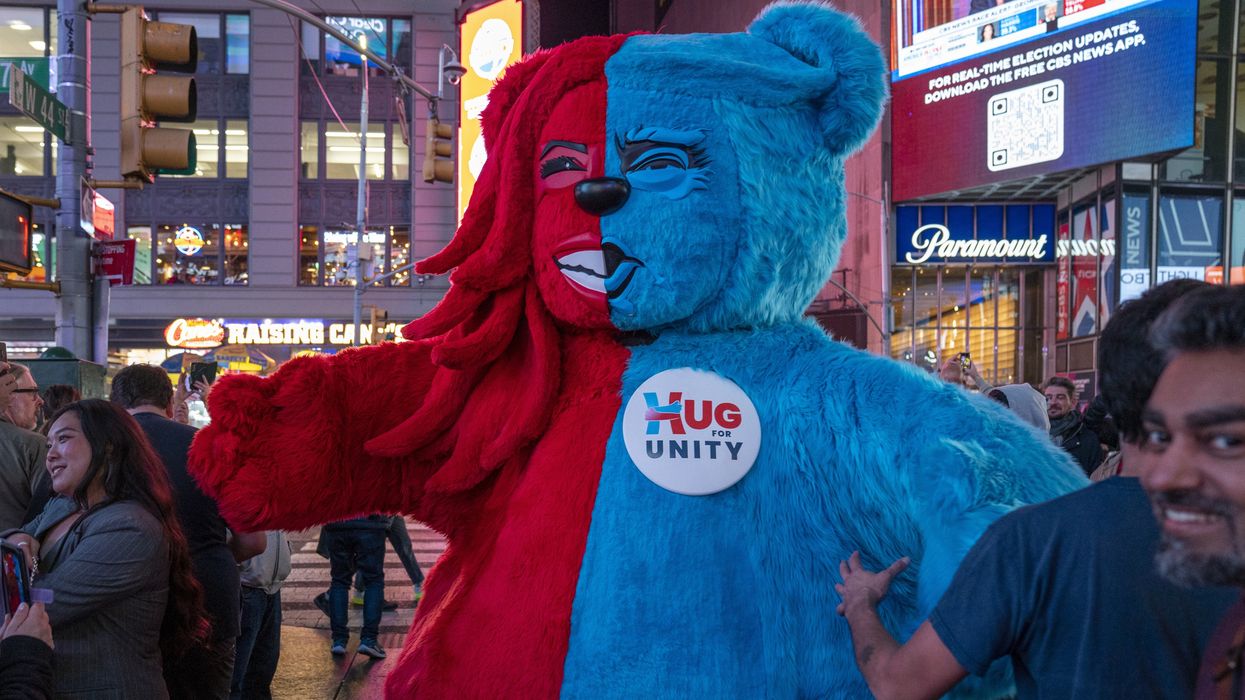Johnson is a United Methodist pastor, the author of "Holding Up Your Corner: Talking About Race in Your Community" and program director for the Bridge Alliance, which houses The Fulcrum.
The 2024 election has come and gone, leaving a nation still reeling from the aftershocks of a deeply divisive campaign season. Regardless of party affiliation, Americans from all walks of life are grappling with the weight of uncertainty. Anxiety, fear and a sense of unease linger in the air, a potent mix of emotions that threatens to fracture our already polarized society further.
Yet, even amidst the turmoil, there lies an opportunity to put aside partisan differences, channel our collective nervous energy into positive action and reaffirm the shared humanity that binds us as one people.
The human spirit possesses an inherent power, a resilience that has allowed us to persevere in the face of adversity time and again. We’ve witnessed this indomitable will in the aftermath of natural disasters, economic downturns and social upheaval — always adapting, always emerging stronger. The days and weeks following the 2024 election will undoubtedly be fraught with emotion, but we must draw upon this wellspring of inner strength to navigate the challenges ahead.
Regardless of the outcome, our commitment to respect for all individuals, dignity in our interactions and the peaceful transfer of power that has defined our democracy must remain unwavering. We cannot allow anxiety and uncertainty to paralyze us; instead, we must transform these feelings into a catalyst for growth, change and unity.
So, how can we channel election anxiety into positive expressions? First and foremost, it’s essential to stay informed but avoid obsession. In the age of 24-hour news cycles and social media echo chambers, it’s easy to get sucked into a never-ending vortex of political coverage. While awareness is crucial, obsessing over minute-by-minute updates only fuels anxiety. Set boundaries — limit your news intake to specific times of the day, avoid social media if necessary, and seek out reputable, balanced sources.
Take action. One of the most empowering ways to combat anxiety is to take concrete steps toward creating the change you wish to see — volunteer for a cause you believe in, even if only for a few hours. For instance, you could volunteer at a local food bank, participate in a community clean-up or help out at a shelter. Donate to organizations aligned with your values. These actions serve as a potent reminder that we have agency, that our voices matter and that change begins at the grassroots level.
Amidst the chaos, it’s easy to neglect our well-being — practice self-care. Mindfulness practices like meditation or deep breathing exercises can help calm the mind and soothe the body. Reach out to friends, family or mental health professionals if feelings of anxiety become overwhelming. Taking care of ourselves is not a luxury but necessary to build a more compassionate and united society.
Seek common ground. It’s easy to get caught up in the “us versus them” mentality that dominates political discourse. Yet, at our core, we share far more than what divides us. Engage in respectful conversations with those of differing political views. You may be surprised at the commonalities you uncover.
Fostering empathy and understanding is a powerful antidote to the toxic polarization that plagues our nation.
The days and weeks ahead will undoubtedly bring efforts designed to divide us further, such as misinformation campaigns, inflammatory rhetoric and attempts to undermine our democratic institutions. Let us not give in to such tactics.
Instead, let’s prove that even in the face of profound disagreement, we can model the very civility and compassion we wish to see in our leaders. Treat others respectfully, listen to their perspectives and engage in constructive dialogue. This is the path forward, the only way to heal the deep wounds inflicted by this election season.
Nov. 5 was not the culmination of an election but rather a commencement — the start of a new chapter in the grand tome of our nation’s narrative. America, let us draw a collective breath, filling our lungs with the promise of possibility.
Square our shoulders and steady ourselves against the inevitable storms that will assail us. And let us live forward. Not unaware, but undaunted and united.
Forward into the not-yet with our collective strength. We are Americans, a pluralistic national experiment whose founding principles are far more significant than any fleeting division that may seek to fracture us.
The question remains: What story will we pen? Will we allow anxiety and fear to guide our hands, or will we choose a different path? The choice is ours and ours alone. A choice for unity over division, empathy over indifference and hope over despair. Let us prove that the American spirit remains unbroken even in the darkest times.



















 From left to right: Gabriel Cardona-Fox, Bud Branch, Joe Concienne
From left to right: Gabriel Cardona-Fox, Bud Branch, Joe Concienne 
Trump & Hegseth gave Mark Kelly a huge 2028 gift